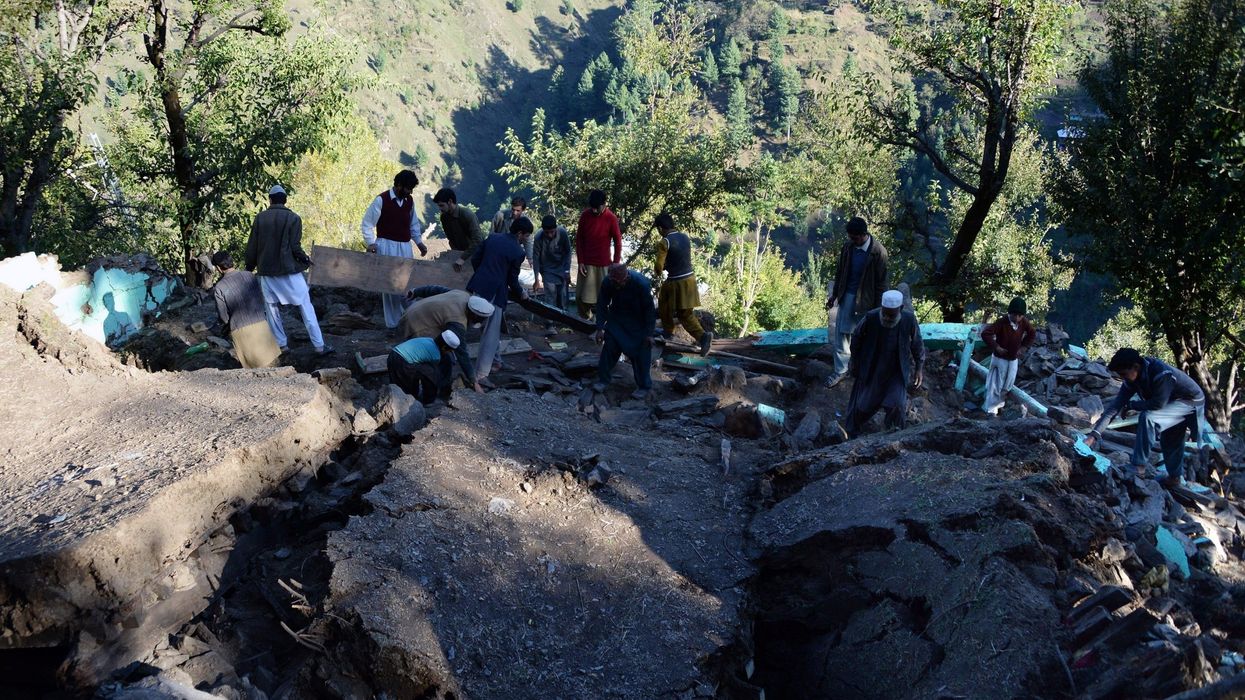On Wednesday (22), authorities reported that a powerful 6.8 magnitude earthquake, originating from Afghanistan's Hindu Kush region, shook Pakistan and resulted in the deaths of at least nine individuals and injuries to over 160 others.
The quake also caused three fatalities in Afghanistan, as per the Khaama Press, an online news agency in the country. The Pakistan Meteorological Department confirmed that the earthquake's depth was 180 kilometres. The tremors were felt in various regions of northern India, including the Delhi-National Capital Region.
The earthquake, which occurred in Afghanistan was felt in various parts of Pakistan, including Lahore, Islamabad, Rawalpindi, Quetta, Peshawar, Kohat, Lakki Marwat, Gujranwala, Gujrat, Sialkot, Kot Momin, Madh Ranjha, Chakwal, Kohat and Gilgit-Baltistan areas.
The Provincial Disaster Management Authority (PDMA) in Peshawar tweeted that the quake resulted in the deaths of nine individuals in Khyber-Pakhtunkhwa province, including two women, two children, and five men.
According to Dawn newspaper, two individuals, a man in Islamabad and a 13-year-old girl in Abbottabad, suffered sudden cardiac arrest and passed away after the earthquake.
Meanwhile, The Express Tribune reported that a stampede occurred in Rawalpindi's markets during the quake. In Swat, over 160 people sustained injuries, and hospitals declared a state of emergency, the newspaper reported.
The earthquake had an impact on the hilly Gilgit-Baltistan (GB) region, causing landslides that caused concern, but no fatalities were reported. According to rescue officials, the landslides destroyed a cattle farm in Yasin Ghizer, resulting in the loss of livestock.
In addition, as per sources, landslides obstructed the Karakoram Highway in the Harban area of Kohistan, near the Diamer district border in GB, stranding numerous people on both sides.
Several buildings in Islamabad and the adjacent city of Rawalpindi exhibited cracks as a result of the earthquake. Prime Minister Shahbaz Sharif has instructed disaster management officials to remain alert to manage any potential crises.
The federal health minister, Abdul Qadir Patel, directed the declaration of an emergency in the hospitals of the federal capital, as reported by The Express Tribune.
In Afghanistan, the Ministry of Public Health confirmed that the quake resulted in the deaths of at least three people, with 44 others sustaining injuries. There is also a possibility of additional casualties, said a spokesperson for the public health ministry, as quoted by The Khaama Press.
Sharafat Zaman Amerkhail, a spokesperson for Afghanistan's Ministry of Public Health, has instructed the heads of all medical centres to prepare their staff for any possible casualties resulting from the earthquake.
The international seismological centre reported that tremors were felt in several countries, including Turkmenistan, Kazakhstan, Tajikistan, Uzbekistan, China, in addition to Pakistan and India.
(With inputs from PTI)




